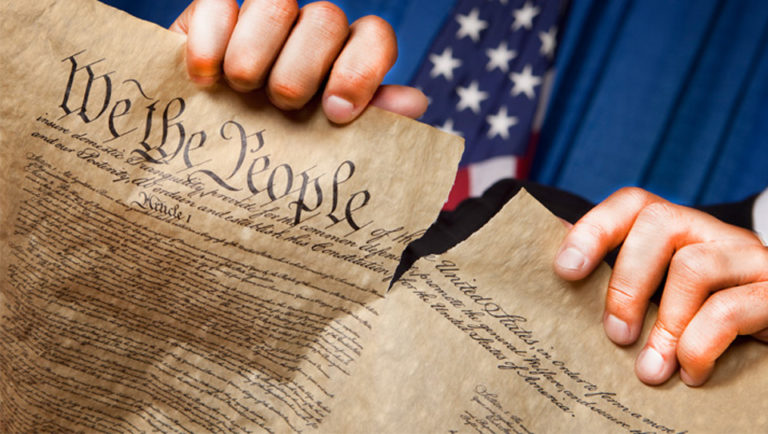
Public closures, a ban on gatherings, quarantine notices and orders for isolation have become increasingly common as the coronavirus continues to spread across the United States. Officials in Washington state and San Francisco are limiting the number of people allowed to attend public gatherings. The governor of California joined them on Thursday in urging the cancellation of all events with more than 250 people in attendance. The governor of Kentucky, a Bible belt state, has asked churches and other religious institutions to temporarily cancel services. But if it seems these actions are infringing on individual freedoms guaranteed by the U.S. Constitution, think again. Hodge is the director of the Center for Public Health Law and Policy at Arizona State University, an affiliate of the Network for Public Health Law. As the number of COVID-19 cases climbs, he said, the types of “aggressive measures” taking place in some parts of the country will be used elsewhere.
As of Thursday, more than a dozen states from California to North Carolina have declared a state of emergency to try and stop the spread of the coronavirus. Hodge said those declarations help shape how public health officials can respond at the state and local level, enabling them to act fast while instituting forms of social distancing — “which is one of the only tools we have available to us” during a public health crisis like the coronavirus pandemic, he said. Officials typically have to go through legal processes to close an establishment or shut down public gatherings, Hodge said. But under a state of emergency, everything is expedited. “It’s not that we don’t have time for First Amendment interests, it’s that we must act fast,” he said. “What was opened today can be closed tomorrow.” That doesn’t mean communities in the U.S. will see the kind of large-scale lock-downs happening in Italy and China, Hodge added. But there are circumstances under which a voluntary recommendation can become involuntary. A man in Missouri left quarantine to attend a father-daughter dance at a nearby hotel, McClatchy reported, prompting county health officials to warn “he must remain in his home or they will issue a formal quarantine that will require him and the rest of his family to stay in their home by the force of law.” When someone opts to evade such recommendations, Hodge said, public health authorities can seek a court order mandating their compliance. “Some of those basic liberties are going to be truncated for a brief period,” he said. “Most Americans understand the need for that.” But these types of public closures and requests for self-quarantine aren’t without good reason — it’s “flattening the curve,” Vox reported. If officials don’t stop the rapid spread of coronavirus, or at least slow it down, epidemiologists have said the health care system could be “overwhelmed by a sudden explosion of illness that requires more people to be hospitalized than it can handle,” according to Vox. Still, these measures aren’t undertaken without due process. “The government does have sweeping powers to combat communicable disease but there are limits,” said Jay Stanley, a senior policy analyst at the American Civil Liberties Union. Stanley said officials have a set of guidelines to follow when it comes to making these decisions — it has to be overwhelmingly in the public interest, rooted in rational, scientific ends and done by the least intrusive means possible. There must also be a mechanism to challenge it. Officials can’t, for example, use COVID-19 as an excuse or pretext “to achieve illegitimate ends” like shutting down a protest or discriminating against certain groups, he said. Hodge said these types of measures aren’t designed to be punitive, they’re protective — and they don’t “trip any constitutional safeguards when done right.” He pointed to a case from the 1980s in West Virginia where a man who officials suspected had tuberculosis was involuntarily confined in quarantine. The man argued he was denied due process when the trial court delayed appointing him an attorney, and judges agreed. That, Hodge said, is an example of what not to do in a public health emergency. “There really are definitive checklists of things you have to show to utilize quarantine and isolation powers at the level we’re going to see,” he told McClatchy. But he said state and local health authorities know that — “this is not guesswork.” The coronavirus hasn’t caught the public health system off guard so much as prompted them to operate on a much larger scale than usual, Hodge said “It gets a lot easier when Americans act on their own volition and self-quarantine pursuant to public health directives,” he said. “Most Americans will respond that way.” The CDC has guidelines on legal authorities governing isolation and quarantine as well as the types of laws and regulations that come into play during a pandemic.